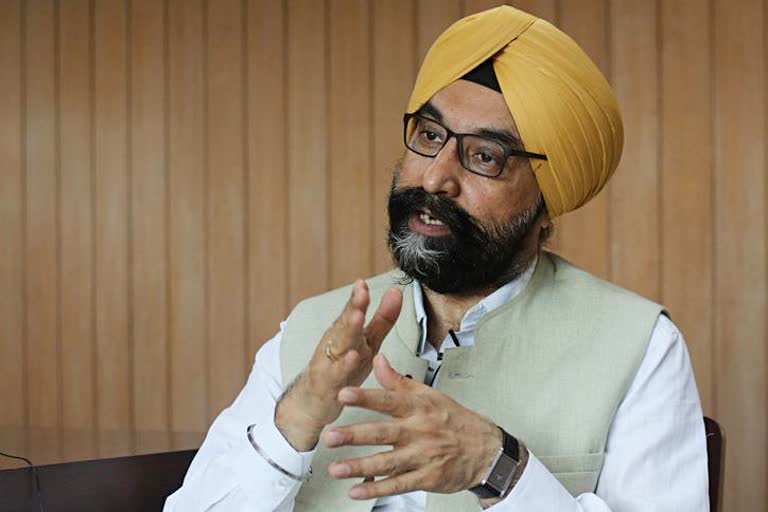Hyderabad: COVID-19 is testing the nerves of Indian industry. Despite disruptions in supply chain, many household names in the market are living up to the expectations of millions of consumers. Amul is one of those companies.
Dr RS Sodhi, Managing Director of AMUL, spoke to ETV Bharat on various issues faced by the company during this crisis and how it is trying to overcome those hurdles.
Getting 15% more milk
RS Sodhi said that the whole business depends upon the milk which they are procuring from 36 lakh farmers every day (rather twice in a day) and they are getting 15 per cent more milk than before.
"The reason is small players have stopped collecting milk from the farmers in Gujarat or outside Gujarat; whether small mithai shop people or the small ice cream manufacturer or the smaller dairy owners. So, farmers are giving more milk or milk is coming more to us," he added.
Several guidelines followed to ensure workers safety
The MD of Amul mentioned various safety measures which were adopted by the company to ensure the safety of employees.
"These safety measures or the guidelines we started implementing on 17th of March about 8 days before the lockdown was announced. At all our 18,500 collection centres in Gujarat and outside Gujarat we put a big banner telling all our farmers or the members what precautions they have to take," he said.
Difficulty in getting labour in Delhi, Bombay and Kolkata
Sodhi explained that the biggest problem which they faced was to get labourers especially in metro cities.
"We faced the biggest problem in getting labour in metros like Delhi, Bombay, Kolkata, Kanpur and Lucknow."
Household consumption increased as people are staying at home
Speaking on panic buying Sodhi said "Initially panic buying was there. Sale of milk and other products increased by 20 per cent. And on 4th day our milk sale declined by 30 per cent. Reason was simple. This HORECA segment that is hotels, restaurants and child shops were closed which together holds consumption of around 15 per cent so our 15 per cent milk goes there which stopped."
Read more:Alphabet CEO Sundar Pichai's 2019 compensation topped $280 million
"Second is panic buying stopped. So today the milk sale is down by only 7 to 8 per cent inspite of 15 per cent less consumption by the local restaurants."
He also said that other than milk there is up to 20 per cent more demand spurt for other milk products which can be used as ingredients for home recipes like ghee, butter, cheese, paneer etc.
Online sales increased by 30 to 40%
RS Sodhi said "what we found is that initially online sales declined because their workers or delivery people were also not allowed to move but as they started moving it picked up. Now online sale is around 30 to 40 per cent more than what it used to be before, especially of milk."
Employees safety is our priority
The MD of Amul said that the only area of worry is that the workers and employees should be safe.
Speaking on the problems faced in collection and supply chain he said "I dont foresee any such problem; in fact, on one hand farmers are happy as they are able to get good price for the milk and on the other hand the consumers are also happy as they are getting the product without paying more."
Technology helped a lot to combat the situation
Sodhi compared the curfews of 90s to 2020 lockdown and said that though minimum staff is coming to the office the work is getting done with the help of technology now.
"Even invoicing is done from home. people are working physically only in the plant and we are able to communicate with anybody, everybody anywhere and we are able to talk also."
Challenge for Indian FMCGs once lockdown is lifted
Sodhi said "All FMCGs especially the food companies have to understand that their pipeline is empty because consumers have purchased a lot. So, first thing is how fast it can fill up the pipeline."
"Second is that now consumer is going for more essential products, more price conscious, more health conscious and the manufacturer has to learn how to meet these expectations".



